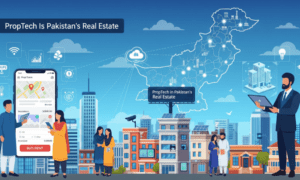The emergence of property technology businesses worldwide generates a significant change in the commercial real estate (CRE) market toward more tech-enabled endeavors and employment options. Landlords with the most up-to-date property tech information are gaining a competitive advantage in the market.
New generations of customers and DIY landlords are using property management software and are choosing efficient technologies that promote faster rentals and more convenient living arrangements. The property market shows no signs of slowing down.
Here are eight real estate technologies landlords should consider in property management software to make their lives easier.
1. Customer relationship management (CRM) software
Property management CRMs minimize the time users spend seeking information while increasing response times by keeping all of the data in one place, allowing them to filter it, and then tracking email outreach.
With the help of CRM, users may submit maintenance requests and sign new leases in only a few clicks. For example, TenantCloud created its CRM system that allows landlords and property managers to keep records of their interactions with prospective tenants and owners.
2. Virtual tours and augmented reality
Virtual property tours and augmented reality are practices that began during the pandemic and have grown in popularity as helpful tools for tenants and landlords.
The convenience of virtual showings is hard to ignore, and it’s a trend that’s sure to last long beyond the epidemic. These tools might be handy for tenants relocating from out of town or landlords who live away from their rental apartments.
3. E-signing online lease agreements
Landlords can use software to store leases and other agreements that require a digital signature. They can also keep the signed paperwork on file for future reference.
If a landlord manages numerous properties, this allows you to maintain all of your documentation in one place and reduces the amount of schlepping users must do to get leases signed or renewed.
4. Online maintenance requests
Tenants can use online maintenance requests to communicate with their landlord about issues as they emerge, including sharing photos of what’s wrong. The landlord can then use the program to track the issue, including saving maintenance receipts for future tax purposes.
5. The Internet of Things (IoT)
The use of various IoT devices and sensors facilitates quick access to information. Sensors and computing technologies are integrated into different devices people interact with daily as part of the Internet of Things.
IoT is required to make people’s life easier. It can change lighting, and room temperature, control household cleaning, and mail delivery – all from the comfort of the user’s own home or apartments for rent using a single app on a smartphone or tablet.
When no one is at home, a virtual assistant can converse with the tenants and those outside the front door.
6. Data management and analytics
With the help of real estate technologies, users can use data analytics to improve operational efficiency, generate cash flow, improve customer service, optimize marketing campaigns, and respond faster to developing market trends.
7. Automated advertising and listings
Property management software systems can produce ad campaigns for new listings automatically. They also target clients and provide real-time analytics like views, clicks, and demographics.
Real estate experts are well-versed in determining which properties are suitable for sale or rent. As a result, they concentrate their efforts on the most lucrative goods.
8. Tenant background check
Paper applications are in the past – they are time-consuming. Various apps and types of software enable landlords to accept online applications. They do credit and background checks instead of asking ideal tenants to come up and bring a paper application.
Eviction notifications, credit reports, housing histories, and criminal records are included in tenant screening reports. Extra charges may apply, yet the application fee may be enough to cover the expenses of tenant screening.
Summing up
In short, industry leaders realize the advantages of investing in real estate and utilizing current technology. Real estate technologies continue to grow in these sectors and will influence everyone in the market.



































